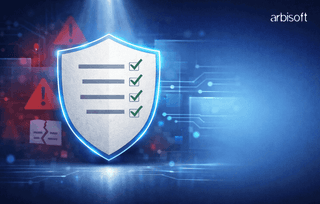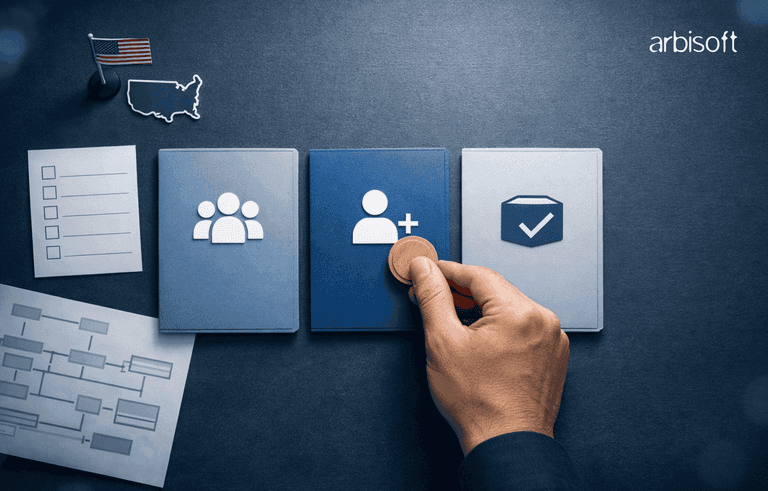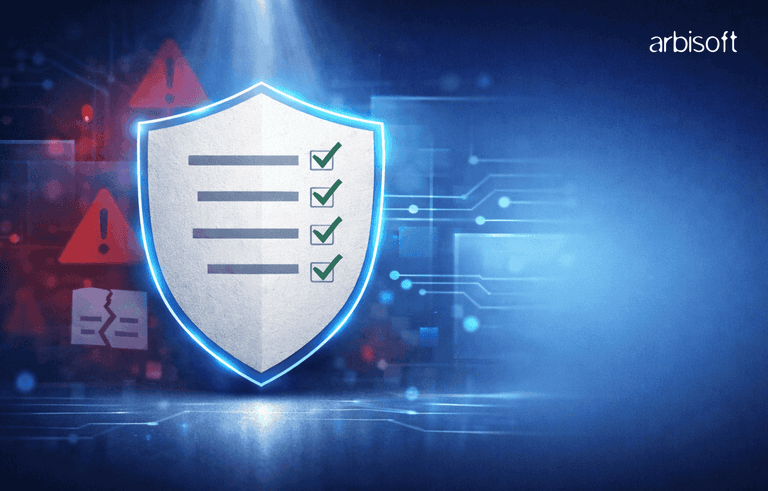We put excellence, value and quality above all - and it shows




A Technology Partnership That Goes Beyond Code

“Arbisoft has been my most trusted technology partner for now over 15 years. Arbisoft has very unique methods of recruiting and training, and the results demonstrate that. They have great teams, great positive attitudes and great communication.”
How To Harness AI Agents For Enterprise Automation And Business Value

Running a business today is harder than ever. Companies want to move quickly, make smarter choices, and keep operations running smoothly. But with more data and complex processes piling up, the old ways of automating work are starting to fall short. Tools that follow fixed rules can only take you so far. That’s why AI agents are getting a lot of attention.
Unlike traditional automation, AI agents don’t just repeat tasks. They notice changes, make decisions on their own, and can manage work that used to need constant human attention. They are changing how businesses think about automation and, more importantly, are delivering real results.
In this blog, we’ll look at how AI agents can help companies work more efficiently, make better decisions, and drive growth over the long term.
What is the Role of AI Agents in Enterprise?
AI agents are smart systems that can watch what’s happening, make decisions, and finish tasks without much human help. They aren’t like simple automation that only follows a set of instructions. AI agents learn from experience, adjust when things change, and can work together with other systems or agents.
Here are the main qualities of AI agents:
- Autonomy: They handle tasks without needing someone to watch over them all the time.
- Adaptability: They adjust when the situation or data changes.
- Collaboration: They work with people, other systems, and agents to reach shared goals.
- Goal-oriented: They focus on achieving clear objectives, such as reducing costs, helping customers, or improving supply chains.
In other words, AI agents act like digital team members rather than simple tools. They can handle repetitive work and also take on more complicated tasks. Experts expect this trend to grow.
Gartner predicts that by 2027, over 40% of large organizations will use AI agents in key workflows.
Industry Applications of AI Agents
AI agents are not limited to general enterprise workflows. Their real strength shows when they are applied in specific industries where challenges are complex and constant. Different sectors face different needs, and AI agents can adapt to each one, creating solutions that traditional automation cannot deliver.
Here are some examples with dedicated blogs that explain how these applications work in practice:
- Healthcare: AI agents help with patient scheduling, triage, and follow-ups, making care faster and more reliable.
- Fintech: They detect fraud, monitor transactions in real time, and support compliance, helping financial institutions stay secure.
- E-commerce: They manage order tracking, customer support, and product queries so that customers get a smooth shopping experience.
- Martech: They improve campaign targeting, provide audience insights, and help marketers make better decisions.
- Travel: They assist with booking, customer support, and upselling opportunities, making travel easier for both providers and customers.
By looking at these industry-focused examples, you can see how the same AI agent principles are applied in different ways. This helps organizations understand what is possible in their own sector and how they can start putting AI agents to work.
Why AI Agents Matter For Enterprise Automation
Automation is supposed to save time and reduce human effort. But it struggles when work involves messy data, unexpected changes, or tasks across different teams. AI agents fill that gap by combining automation with smart decision-making.
Here’s why companies are turning to AI agents:
- Handling big data: Businesses generate huge amounts of data daily. AI agents can process it quickly and take action in real time.
- Managing complex workflows: Modern operations often involve many systems and teams. AI agents can coordinate across them without waiting for manual input.
- Reacting to changes fast: Customer needs, market trends, and supply chains can shift quickly. AI agents respond faster than traditional tools.
- Scaling easily: They can manage thousands of tasks at once while keeping performance steady.
Thanks to cloud computing, advanced algorithms, and enterprise data, AI agents can now be part of everyday operations. This improves efficiency, speeds up decision-making, and makes businesses more resilient.
If you want a deeper look at the inner workings of AI agents, check out our blog on AI agent architecture for a clear, step-by-step explanation.
How AI Agents Enable Enterprise Automation
Using AI agents in your business isn't just about adding another tech tool. It's about building a clear, step-by-step plan that connects every part of adoption with real automation results and business value you can measure. When you do this right, AI agents become more than just helpers. They turn into growth drivers that save you time, reduce costs, and make your daily operations run much smoother.
Here's a guide to help your company adopt AI agents the right way.
1. Identify High-Impact Use Cases
Your first step is finding where AI agents can give you the biggest business return. Instead of trying to use them everywhere at once, take a close look at processes that are:
- Highly repetitive
- Deal with large volumes of data
- Require frequent or quick decision-making
Here are some practical examples you can consider:
- Customer Service: You can automate query resolution, route tickets to the right team, and offer 24/7 support to your customers.
- Finance: You can streamline invoice processing, detect fraud patterns, and handle compliance reporting more efficiently.
- Supply Chain: You can manage inventory more accurately, plan logistics better, and coordinate vendor communication smoothly.
- IT Operations: You can monitor system health, resolve common incidents automatically, and ensure your systems stay up and running.
- HR: You can support recruitment tasks, guide employees onboarding, and answer policy-related queries quickly.
You should carefully assess each use case based on how much it can reduce your costs, speed up your processes, and improve accuracy. When you start with the right use case, you build a stronger foundation for adoption.
2. Build a Strong Data Foundation
Your AI agents can only perform well if they get high-quality, reliable data. Without this, your automation efforts might lead to inconsistent or even biased results. Here's how you can prepare:
- Consolidate data: Bring together information from your different business systems into one unified source of truth.
- Maintain data quality: Make sure your data is accurate, clean, and up to date.
- Protect data: Put security measures in place to prevent unauthorized access or misuse.
- Set governance rules: Define how data gets collected, shared, and accessed across your enterprise.
When you build a strong data backbone, you make sure your AI agents have the right inputs to deliver consistent, trustworthy outputs.
3. Start With Pilot Projects
Jumping straight into full-scale adoption can be risky for your business. A safer approach is to begin with small, controlled pilot projects. These let you test:
- How well the AI agent works with your existing systems
- How your employees interact with it in real workflows
- What measurable value it brings, like reduced processing time, lower costs, or fewer errors
Pilots also build confidence among your stakeholders. They show proof of value before you scale further. When you have tangible results in hand, it becomes much easier to gain buy-in from leadership and employees.
4. Integrate AI Agents Into Workflows
For AI agents to make a real difference in your business, they need to be built directly into your daily business processes. You can't leave them as separate tools. This means:
- Connecting them with your enterprise systems, like ERP, CRM, and HR platforms
- Designing workflows where AI agents handle repetitive or low-value tasks, while your humans focus on higher-level decisions
- Making sure handoffs between AI agents and employees are smooth so that tasks don't get stuck
When you integrate them well, AI agents work like invisible helpers. They're always running in the background to improve productivity without disrupting how your people work.
For practical guidance on building task-specific AI agents that are scalable, safe, and reliable, read our blog on developing specialized AI agents.
5. Establish Governance and Oversight
Your AI agents must run under clear rules and accountability structures. This ensures trust, safety, and compliance. Key measures you should take include:
- Setting role-based permissions and access controls
- Monitoring and reviewing AI decisions to ensure transparency
- Following all industry regulations for data privacy and security
- Defining escalation protocols where humans step in if needed
This governance makes sure your automation is ethical, compliant, and aligned with your business priorities. It doesn't operate in a black box.
6. Train Employees To Work Alongside AI Agents
AI agents reach their full value only when your employees know how to use them effectively. Training is essential to:
- Show your employees how to interact with AI agents during their everyday workflows
- Teach them how to interpret AI-generated outputs correctly
- Clarify when and how to escalate issues that the AI agent cannot handle
When you train your staff properly, you reduce resistance to change. You turn AI agents into trusted partners that enhance human productivity instead of replacing it.
7. Measure Business Value Continuously
Deploying AI agents without tracking results can lead to wasted resources. You should establish a system to measure outcomes regularly. Focus on metrics like:
- Efficiency Gains: Time saved and operational cost reductions you can measure.
- Accuracy: Fewer errors in processes such as reporting, data entry, or decision-making.
- Customer Impact: Better resolution times, higher customer satisfaction, and improved service quality.
- Scalability: The ability of your AI agents to handle larger workloads without performance issues.
All these measurements should connect directly to your financial and operational KPIs. This shows clear ROI and keeps your leaders confident in the investment.
8. Scale Automation Across the Enterprise
Once your pilot projects prove successful, it's time to expand AI adoption across your departments. Scaling involves:
- Extending AI agent use cases to new areas like marketing, compliance, or procurement
- Building a shared AI platform to avoid duplication and reduce costs
- Setting up a central automation team to manage best practices, governance, and technical support
When you scale properly, you spread efficiencies across your organization. This multiplies business value and prevents automation from staying stuck in silos.
9. Continuously Improve With Feedback Loops
AI agents are not one-time deployments. They need constant refinement and updates to keep delivering value to your business. You should:
- Gather user feedback and use it to improve AI agent performance
- Continuously update AI models with new and more relevant data
- Experiment with advanced capabilities like predictive insights or multi-agent collaboration
This ongoing improvement ensures your AI agents evolve alongside your business needs. It makes automation smarter and more impactful over time.
For organizations looking to enhance their AI capabilities, solutions like Arbisoft Generative AI provide a complete approach, from fine-tuning models to handling large datasets, helping businesses integrate Generative AI responsibly while keeping control, privacy, and fairness a priority.
Measuring Business Value From AI Agents
AI agents are only successful if they deliver real results. Companies need to measure outcomes that show how automation is helping the business. Key areas to track include:
- Cost savings: Reducing manual work, preventing errors, and using resources more efficiently.
- Faster workflows: Completing tasks quickly and cutting delays.
- Better customer experience: Providing faster support, higher satisfaction, and more personalized service.
- Revenue growth: Finding new opportunities through better predictions and improved services.
- Risk reduction: Lowering fraud, compliance issues, and operational mistakes.
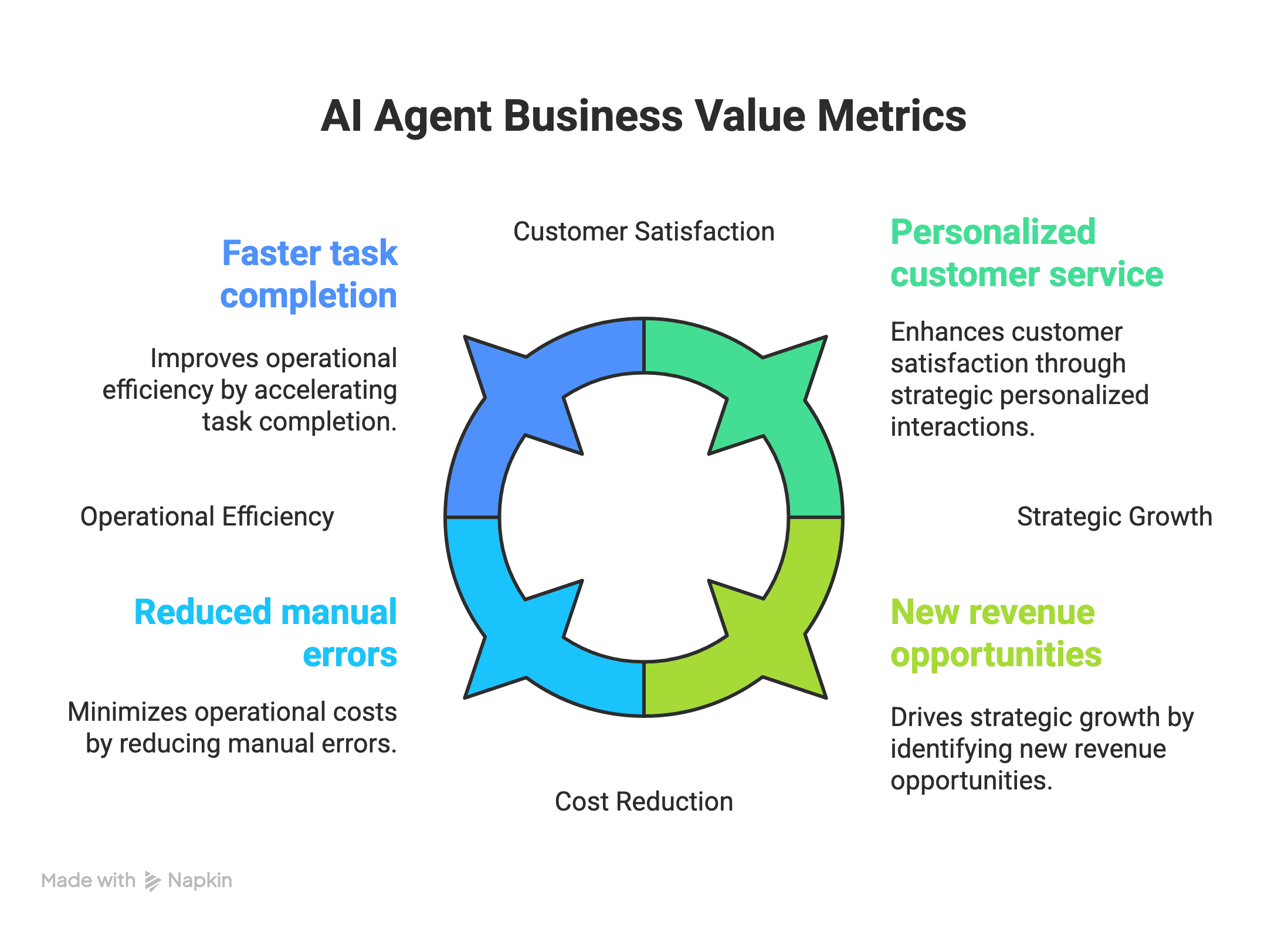
McKinsey estimates that AI could generate up to $4.4 trillion in value each year by 2030. AI agents will play a major role by making automation smarter.
Overcoming Common Challenges
Using AI agents isn’t always easy, but planning ahead can make it smoother. Common challenges include:
- Data issues: Poor or scattered data can limit results. Cleaning and organizing data is essential.
- Integration hurdles: Connecting AI agents to older systems takes careful planning.
- Employee resistance: Some staff may resist new ways of working. Clear communication and training help.
- Ethics and compliance: AI decisions need to be fair, clear, and follow regulations.
- Scaling problems: Pilot projects might succeed, but expanding requires strong systems and governance.
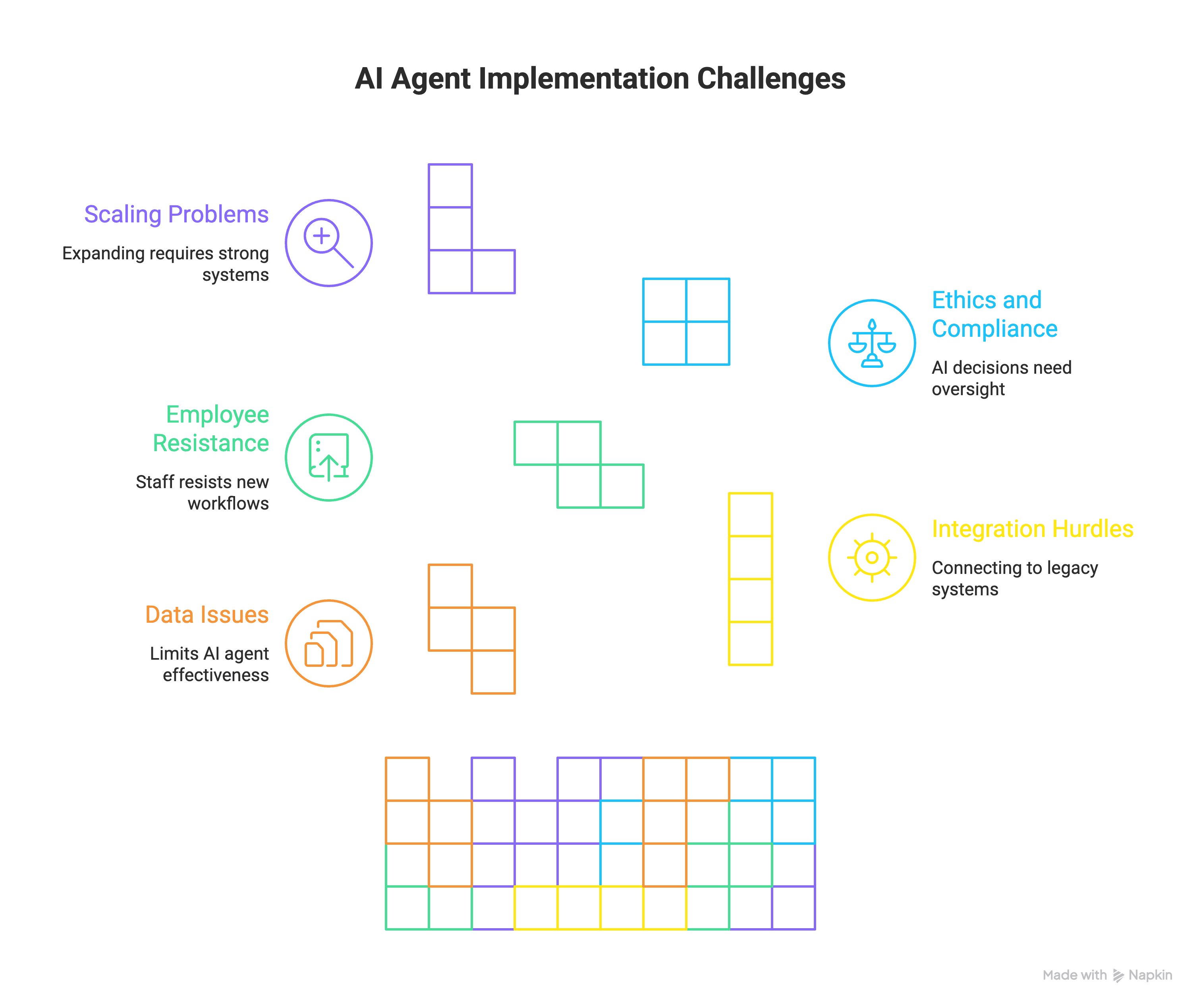
By tackling these challenges early, companies can use AI agents safely while reducing risk.
Real-World Example: John Deere: AI-Powered Autonomous Tractors for Precision Farming
John Deere has introduced autonomous tractors that rely on AI agents combining computer vision, GPS guidance, and advanced sensors to operate without a driver in the cab. These systems allow the tractors to navigate fields, plant seeds, and harvest crops with high precision, while continuously adjusting to soil conditions and environmental changes in real time. By tackling labor shortages and boosting efficiency, this innovation makes large-scale farming more sustainable and effective.
The Future of AI Agents in Enterprises
AI agents are still evolving, and their potential will keep growing. Advances in language models, adaptive reasoning, and multi-agent collaboration will let them handle more complex tasks across entire organizations.
In the future, AI agents may manage supply chains, negotiate contracts, and support high-level decisions. Companies that adopt them now will gain a competitive edge. Those who wait risk falling behind in industries moving quickly toward intelligent automation.
Have questions or want to see how AI agents can work for your business? Get in touch with our team here and let’s explore the possibilities together.
FAQs
1. What exactly is an AI agent?
An AI agent is a smart software program that can observe, make decisions, and complete tasks with minimal human input. Unlike traditional automation, it learns from experience, adapts to changing conditions, and can collaborate with people or other systems.
2. How are AI agents different from traditional automation tools?
Traditional automation follows fixed rules and can only handle predictable tasks. AI agents can handle complex workflows, respond to unexpected changes, and make independent decisions, acting more like digital team members than simple tools.
3. Why should enterprises use AI agents?
AI agents improve efficiency, handle large volumes of data, coordinate across multiple systems, respond quickly to changes, and scale easily. This makes them ideal for improving productivity, reducing costs, and enhancing decision-making.
4. Which business areas benefit most from AI agents?
Key areas include:
- Customer Service: Automate support tickets and offer 24/7 assistance.
- Finance: Streamline invoices, detect fraud, and handle compliance.
- Supply Chain: Optimize inventory, logistics, and vendor coordination.
- IT Operations: Monitor systems and resolve incidents automatically.
- HR: Support recruitment, onboarding, and policy queries.
5. How can companies start using AI agents effectively?
Start small with pilot projects, identify high-impact use cases, ensure quality data, integrate AI agents into workflows, and train employees to work alongside them. Measure results to ensure real business value before scaling.
6. What kind of data do AI agents need?
AI agents require high-quality, accurate, and up-to-date data. Consolidating data from different systems and ensuring security and governance are critical for reliable outputs.
7. How do you measure the success of AI agents?
Success can be tracked through metrics like cost savings, faster workflows, improved accuracy, better customer experience, scalability, and overall revenue growth.
8. What challenges do enterprises face with AI agents?
Common challenges include:
- Poor or scattered data
- Integration with legacy systems
- Employee resistance
- Ethics and regulatory compliance
- Scaling projects across the organization
9. How can companies overcome these challenges?
Plan carefully, clean and organize data, provide training, establish governance and oversight, and scale gradually from pilot projects to full adoption.
10. What does the future look like for AI agents in enterprises?
AI agents will increasingly handle complex tasks, from supply chain management to high-level decision support. Early adopters can gain a competitive advantage in intelligent automation, while late adopters risk falling behind.










